“Unit 1991” first training course has reached the stage of artificial intelligence. After mastering the theoretical mathematics course, participants focus on machine learning algorithms.
In September 2019, the Foundation for Armenian Science and Technologies (FAST), Defense Ministry of Armenia and the Hi-Tech Cyber Security Center signed an Memorandum of Understanding within the framework of “Unit 1991” program. FAST has launched the “Unit 1991” training course.
“Unit 1991” teacher, AI programmer at FAST Nshan Potikyan told Mediamax about the learning process and the participants' success.
Practical teaching of mathematics
“We’ve started off with mathematics and programming classes because they are necessary for teaching machine learning algorithms,” said Nshan Potikyan.
After the math theory class, homework assignments and typical exercises have been prepared, which the participants solved during the practical math class.
“We would show the participants an example and they would solve the problem on the blackboard, demonstrating how they have done it. This way, we were trying to also develop their ability to explain and work with the audience, because in the future they should be able to explain to others what they have learned. We are trying to make sure that they learn from their mistakes, too,” said Nshan Potikyan.
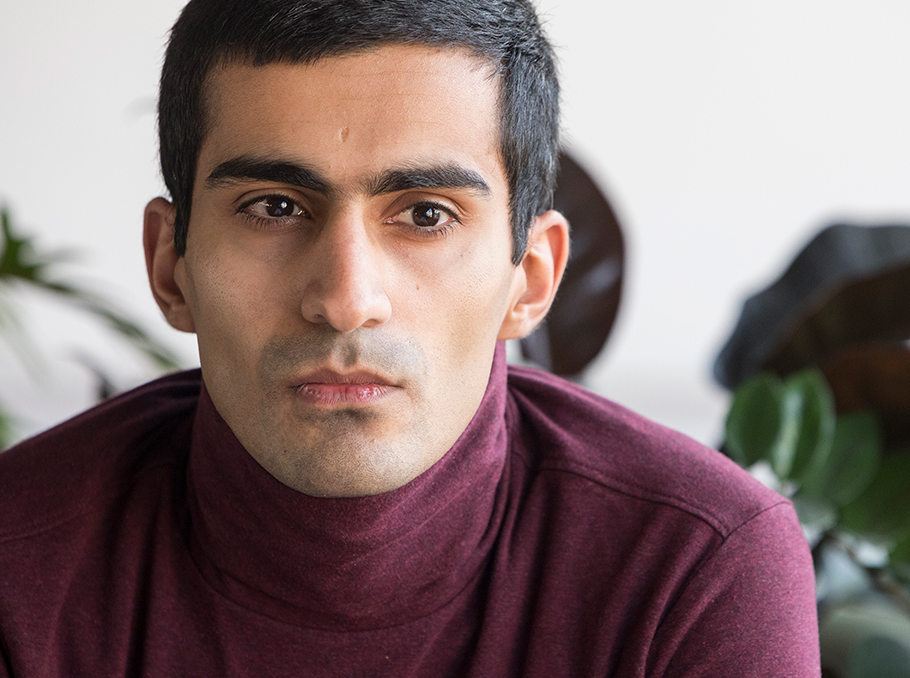 Nshan Potikyan
Nshan PotikyanPhoto: Mediamax
Programming and Machine learning
They have singled out the software and tools needed for machine learning.
“We have started from scratch and taught Python programming language, which includes various machine learning algorithms. Now that we have done it we can say with certainty that the students are fully proficient in Python and can write their own program from scratch. We have already singled out a number of defense and civil problems that can be addressed through machine learning algorithms and artificial intelligence.”
 Nshan Potikyan
Nshan PotikyanPhoto: Mediamax
Two branches have been singled out for machine learning classes: classical machine learning and deep learning algorithms. They fall under the general “umbrella” of machine learning and have much in common, although there are differences in approaches.
“I mainly teach classical machine learning algorithms, and Vazgen Mikaelyan teaches deep learning algorithms. First we are having theoretical and then practical classes: we talk about theoretical ideas and then program them using codes. Besides trying to create something from scratch so that the students have a better understanding of how algorithms work, we also use existing solutions,” said Nshan Potikyan.
The success of the participants
As Nshan Potikyan says, participants are greatly interested in the course.
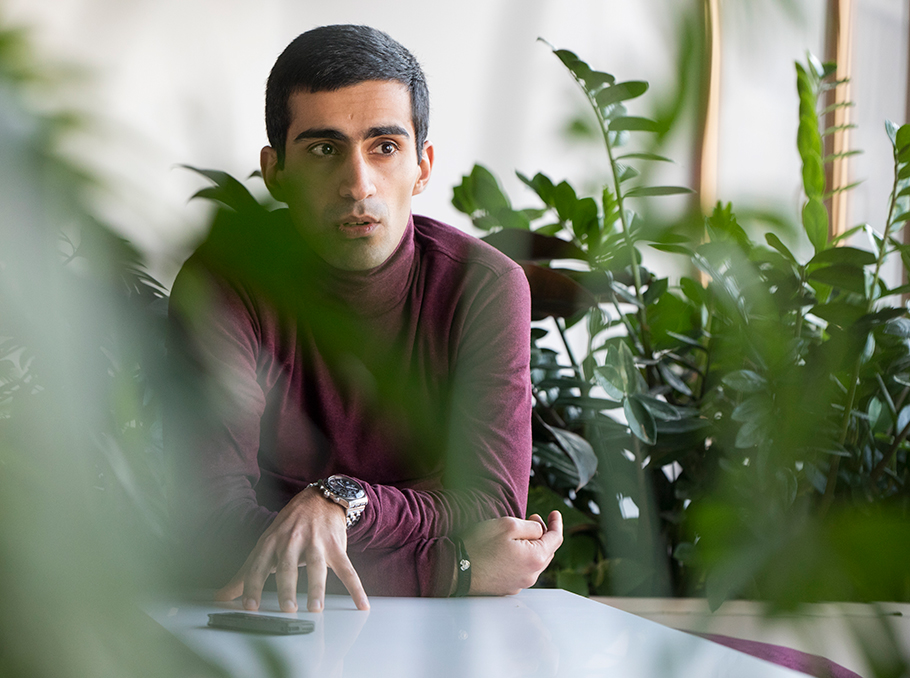 Nshan Potikyan
Nshan PotikyanPhoto: Mediamax
“We see it in their questions and their engagement, and I can say that my expectations have been more than fulfilled. At first we had doubts as to whether they would be able to master this amount of mathematics, especially based on school knowledge. But everything was all right. On the contrary, there are school students who had absolutely no problem in mastering mathematical knowledge that second- or third-year university students are learning.
COVID-19 and distance learning
Due to the COVID-19 pandemic in Armenia, the “Unit 1991” training course is now held online.
 Nshan Potikyan
Nshan PotikyanPhoto: Mediamax
“The transition to online learning was fast and smooth. On Thursday we had a practical class, and that evening the state of emergency was announced. The very next day the programming class was already held online. It was odd, because we were used to direct contact with the students, when from just looking at their faces we could tell if they understood the material or not. We still check the homework; we simply get it electronically and look it over briefly. When everything goes back to normal, we will be able to have the students’ homework on paper and check it properly.”
Various platforms and tools were used to organize distance learning. Up till now the course has been held in accord with the plan, and Nshan Potikyan thinks they will be able to successfully complete it.
Marie Taryan
Photos: Emin Aristakesyan
Video: Gayane Yenokyan
















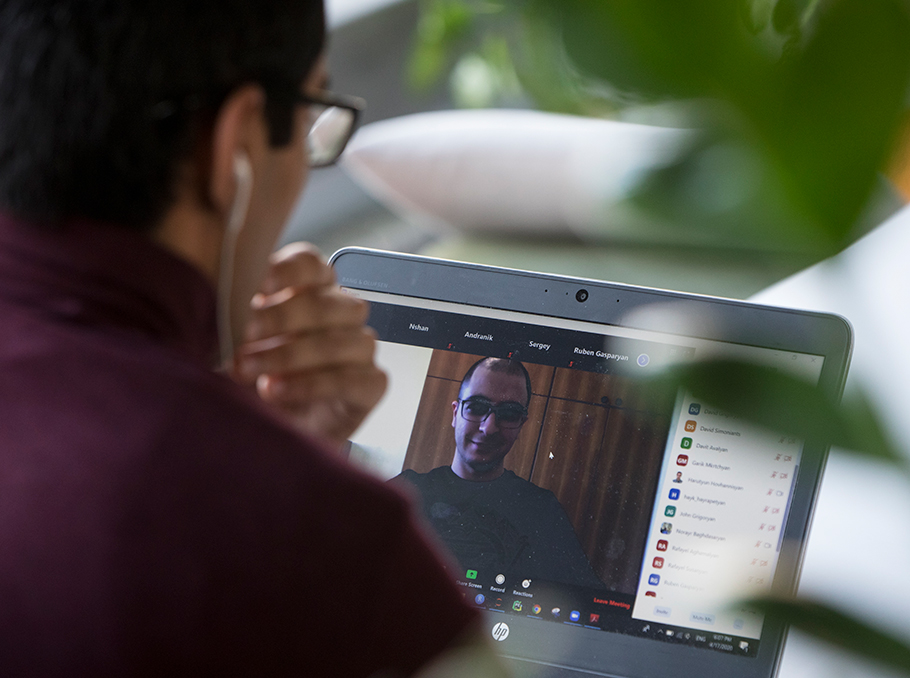
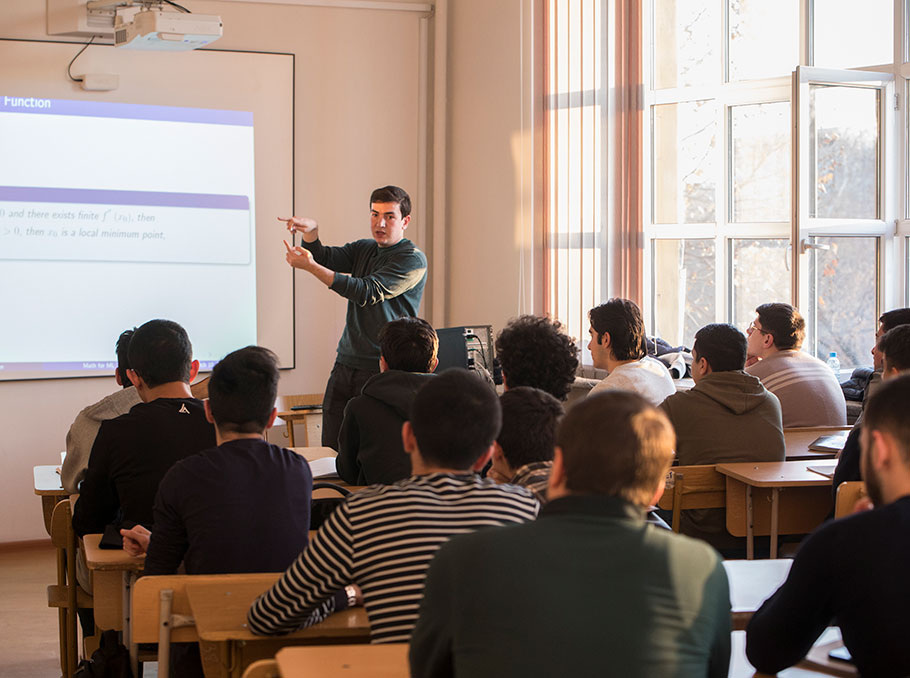

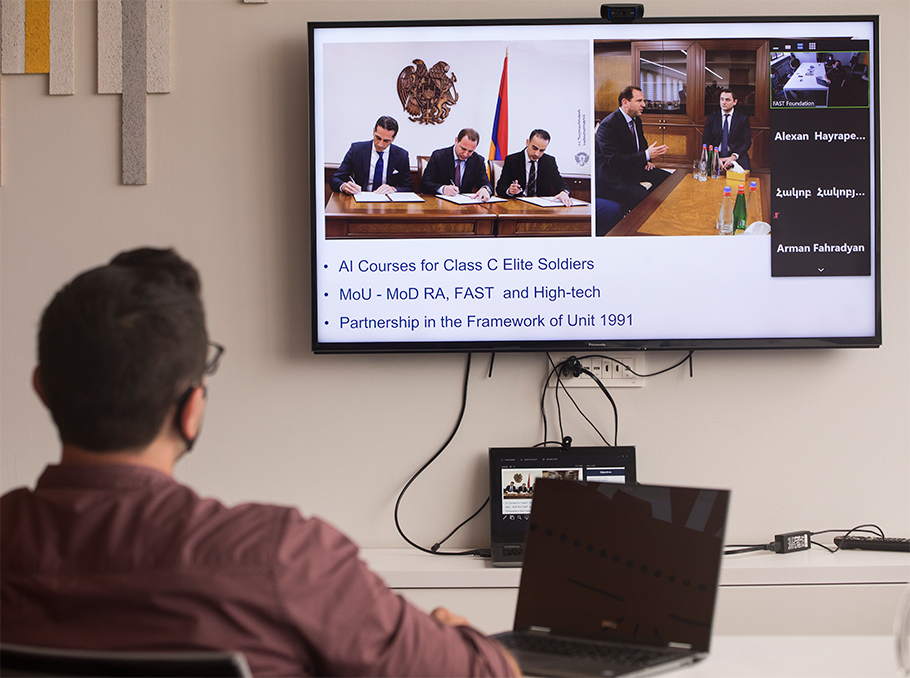
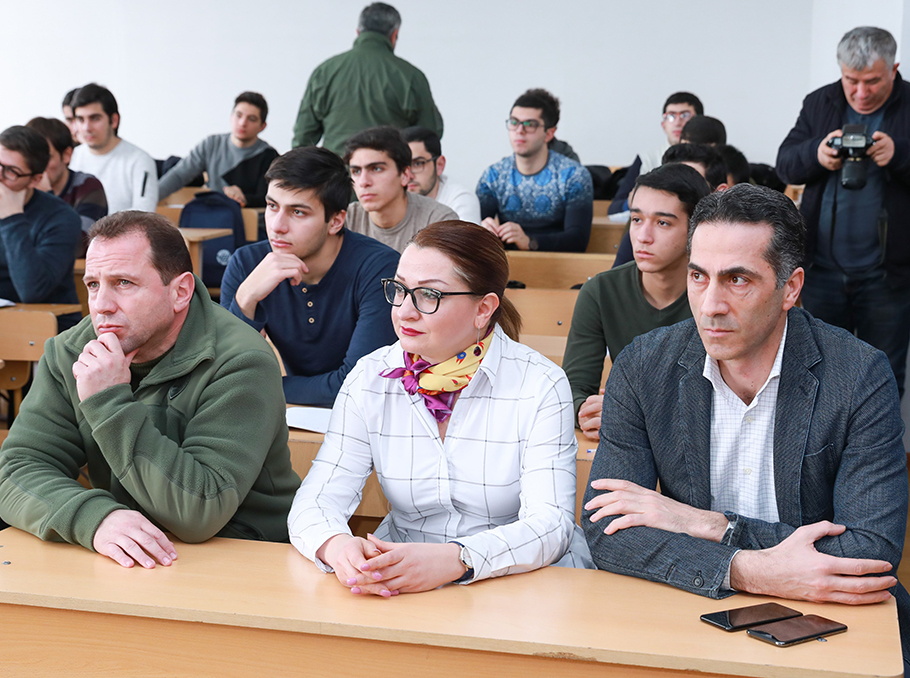
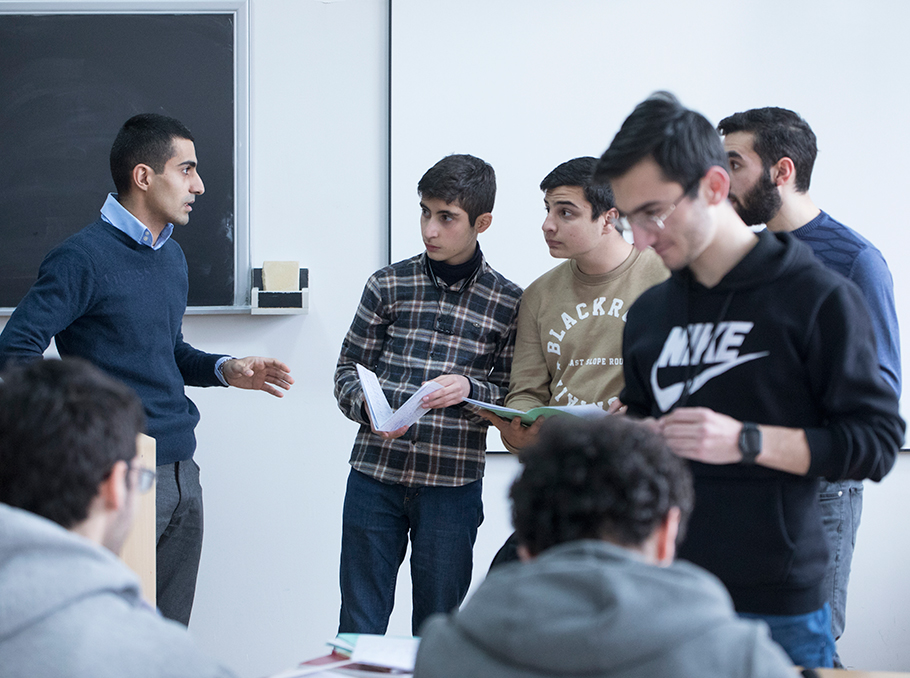





Comments
Dear visitors, You can place your opinion on the material using your Facebook account. Please, be polite and follow our simple rules: you are not allowed to make off - topic comments, place advertisements, use abusive and filthy language. The editorial staff reserves the right to moderate and delete comments in case of breach of the rules.